A note:
This week’s text is not meant to be a tragic lamentation of everthing I have lost in the last two years. I want it to stand as an acknowledgement and an attempt at acceptance of where I am at and what remains. Grief and pain are a part of my life, but they do not denote its borders. They co-exist alongside beauty and joy and everything that remains (some of which takes up more space now thanks to some losses).
A year ago, early April 2023, my health took a turn for the worse, and I still dream of my poor - yet better-than-now - health from back then. If someone had told me that 365 days later, this would be my life, I would have laughed at them. This week is an fundamental “anniversary” for me to recognize. Most days, or at least part of those days, I am okay-ish (you know, considering). But nobody better be even thinking anything along the lines of “everything happens for a reason”. Cause just no.
Mastering the art of losing, ctd.
Loss has continued to act as a focus, sometimes even as a focalizer in my life. Although spring is in full swing here in Austria, the soft echo of new beginnings is stifled in the vast space loss has left. My Long Covid and chronic illness life is marked by absence. While some of these I have only noticed after months, others are felt deeply and some break my heart on a daily basis. An absence of opportunities, choices, relationships.
Grief is a leitmotif of my inner monologue; it makes it into my therapy sessions; it creeps up at me at night, which makes my bed drown in salt water: the tears on my pillow and the night sweats on my blanket and mattress; an emotion that finds me in the texts I read, the songs I listen to, and the art I create. For the kind of grief I’ve been feeling, my therapist taught me a new word: disenfranchised grief.
Bereavement expert Kenneth Doka coined the term disenfranchised grief in 1989.
The term tries “to capture this feeling of loss that no one seems to understand and that you don't feel entitled to. ‘[…] a loss that's not openly acknowledged, socially mourned or publicly supported,’ […]. Doka says disenfranchised grief doesn't just occur when someone dies — it includes other losses that aren't acknowledged: a pet dying, losing a job or missing out on milestone events […].”
NPR “The Importance of Mourning Losses (Even When They Seem Small)” June 14,2021
While I have previously written about various aspects of loss that have come as a package deal with chronic illness, one major aspect needed some more time to form in my mind and for me to be able to share: The loss of parts of myself.
(Re-)Read Part 1 & Part 2 of “The Art of Losing” by following the links:
The Art of Losing, Part 1 about a new perspective on loss and an introduction to this topic
The Art of Losing, Part 2 about losing relationships and trust
Never has it been clearer to me than in the past two years that there is no clearly separated mind and body. If my body is sick, that effects every aspect of my being. Yet most doctors continue to look at only one part, as if my body were a car and by changing the oil, everything would magically be fixed. At the same time, I am meeting myself in a whole new way where all of the things I do - that I was convinced made up part of me, too - fall away and I am left with someone else entirely. Well, not entirely, but different from how I used to see the “essence” of myself in the past.
When I look in the mirror, some days I don’t quite recognize myself, unless I take a good hard look.
I used to define myself to a large extent, I am now aware, by my cognitive abilities, aka my neurodivergence (more on that in the future). I was always smart (don’t mean to brag…), had my own particular way of looking at the world and accessing information in the world around me, something that (still) makes me often feel very different. When I was a kid, most other kids never made sense to me (or I to them) and it took a few decades to see these divergences as an asset. But suddenly, my brain stopped working the way I had gotten used to and relied on for 35 years, and instead I had to deal with brain fog, memory problems (jeez, my short-term memory is a joke), a hard time concentrating, etc.
For instance, I still remember topics a cousin and I used to write about in letters to each other 25 years ago (remember those!?), but if I read for more than 20 minutes now, I’m exhausted. I would go on long-distance hikes where I would easily walk up to 100 km in four days; now I am happy if I make it up one flight of stairs without being out of breath. I used to go to academic conferences and attend talks from morning till night for days at a time; listening to one whole talk is too much these days.
Of all the relationships that have changed over the last two years, the one to myself is has undergone the most significant shifts. How I am in my body, with my mind and my emotions. I have lost more than 10% of my body weight. For many, this weight loss does not register as something particularly bad (thanks a lot, society obsessed with looks and being skinny), but it, excuse the pun, does weigh heavy on me. With the weight, I lost muscle mass and thus part of my strength. And: I now look at my closet that is full of clothes I love(d), yet very few items actually fit me. I have only two pairs of pants - one of them dungarees - that I can wear without a tight belt and/or suspenders. All of my tops are too big. Some dresses that I loved, that I considered investment pieces, simply hang on me, and I don’t feel comfortable.
The comfort I found in pieces of clothing, most of which I carefully chose and took good care of over the years, is gone. I look at myself in the mirror and see my collar bones stick out, my ribs, I can easily trace the veins under my skin, even some underwear has become too loose. I do not want this. Yet in our superficial environment, the only response to my lamentation is: “But you look great”. The irony: I check my weight more regularly now than I ever have; not to check if I put on any weight, but rather to make sure I don’t lose any more.
With the weight loss and loss of strength comes a fear that my deteriorated health will cost me my place - and space - in the world. Due to my neurodivergence and a slew of other factors (including being socialized as a woman), for too long, I made myself a lot smaller to accomodate other people’s emotions, opinions, and literal bodies. (Let’s be honest: this means mostly men.) In school I already stuck out like a sore thumb so I toned myself down a bit; at work, I would have grand visions and ambitions, a clear understanding of things that did not work, all of which did not land well with superiors, either. Now, well into my 30s, I don’t give a fuck anymore and have claimed space for myself; but: it takes maintenance, i.e. energy and strength, to sustain that space.
To answer a teacher’s question of “what I wanted to be when I grow up” (what a stupid question to ask of 14-year olds and kids of any age) my response was: world traveler. And for around 20 years, that is exactly what I did and how I saw myself. While I didn’t travel non-stop for two decades, I lived in a handful of different countries and visited many more on various continents. Now, I rarely visit my parents, who live three hours away by public transport, because the simple act of taking the trip is (too) exhausting. I always had a next travel destination in mind; now I cannot even fathom the idea of traveling anywhere.
Every single aspect of my life - and thus of my self - has been impacted by chronic illness:
used to be a morning person - not anymore
I need to plan my showers considering my overall week and activities
I shower sitting down (same goes for brushing my teeth about half of the time)
every morning requires a self check-in to evaluate the previous night and the upcoming day in terms of energy level, pain, dizziness, etc.
always take the elevator
mandatory nap after lunch or I’ll pay for it the next few days
keep a stack of easy-to-cook food, snacks, teas, and meds at home in case of a crash
reading a lot of children’s books
sitting or lying down most of the time
getting a 30-minute walk in (same route every time) is a good day
no headache or nausea is a very good day
I am very irritable - constant exhaustion and fatigue will do that to you
socializing ideally limited to a max. of 2 hours (max. 1-2 times/week)
exclusion of many aspects of social life: anything happening in the evenings, involving more than two people, requiring being on my feet a lot; unpredictability is a killer
no plans too far into the future, because there is no point.
Futile Efforts
One aspect of chronic illness that is not often talked about is what I call “futile effort”. Say you have a coffee date with a friend in two days, something you have been looking forward to for a while. Knowing yourself well at this point, you make sure that you avoid any strenuous (mental and physical) activities on the day(s) leading up to the date. In my case, I schedule a shower the day before and make sure I improve my chances for a good night’s sleep (sleep hygiene y’all!). The morning of will be as simple as possible: choose an outfit and pack a bag (with all the chronic-illness essentials) the night before; leave the breakfast dishes in the sink; plan some extra time to get ready. And then, as you want to brush your teeth and get changed, it hits you: you don’t feel well enough to leave the house. You need to cancel your plans (again).
Not only is it upsetting having to cancel plans (last minute), but it’s also a little soul-crushing when you consider that a) you tried to do everything “right” and it still wasn’t enough, and b) you still spent a whole lot of energy and mental and physical acrobatics on something that ends up not happening. So there’s no “reward” and you feel extra shitty.
And this “futile effort” does not solely apply to meeting people and canceling plans. It can relate to a number of things (not all of which happen[ed] to me, but are a collection of disappointments from the community):
You buy some lovely ingredients but then don’t have the energy to cook and use them.
You apply to jobs/for funding/etc. but you only receive rejections.
You invest your resources to hire a caregiver to help with some daily tasks, but it does not work out repeatedly.
You have a good day/hour/… only to crash later in the day or week.
You reach out to loved ones because you realize that human connection is so essential to your well being, even if interactions need to remain very short, only to be met with misunderstanding/lack of compassion/a wall of silence.
While the pain and symptoms often feel impossible to bear for another minute, these “futile efforts” can leave you completely defeated. I am learning to deal with the lifestyle changes and adaptations and pacing, but what is so hard to grasp and make people understand is that the other stuff causes just as much - if sometimes not more - emotional pain. And the strength that is required to keep at it and to try again…
So if you understand what I’m talking about: I’m sorry and it sucks and I see you.
If you know someone that might be going through something like this, and chances are that you do: Please show kindness and grace and compassion. Don’t tell us to “think positive”, that “everything happens for a reason”, or any other such bullshit. Listen to us, believe us, and see us.
Words that remain
Moira Rose shall have the last word this week:
Glimmers
Glimmer: a micro moment of joy, awe, hope, safety; opposite of trigger
Visiting my family for a few hours over the Easter weekend. 🤗
My cats chilling with me in bed until I am ready to get up.
A question that remains…
Have you experienced “disenfranchised grief”? How were you treated? 🤔🤔🤔




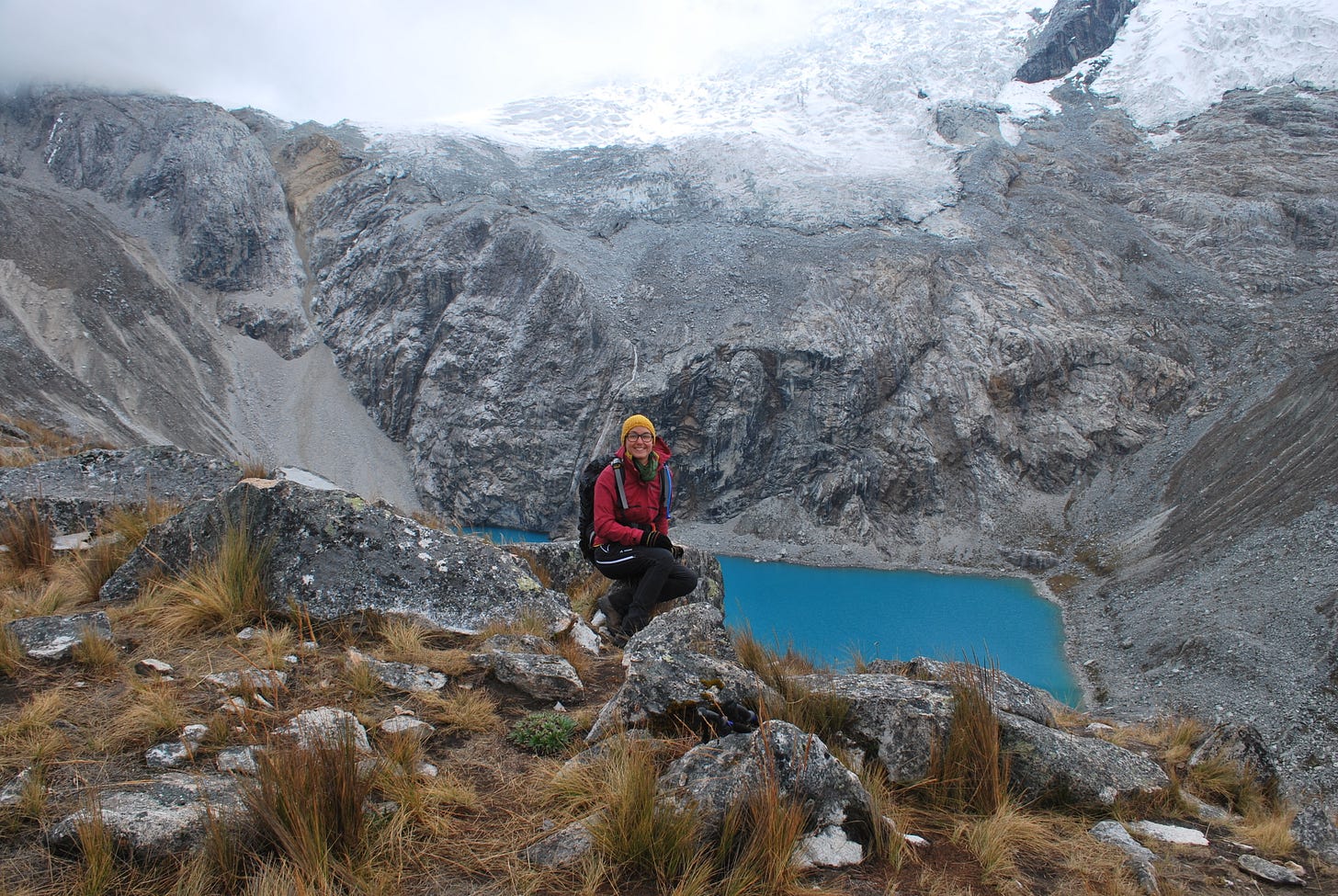
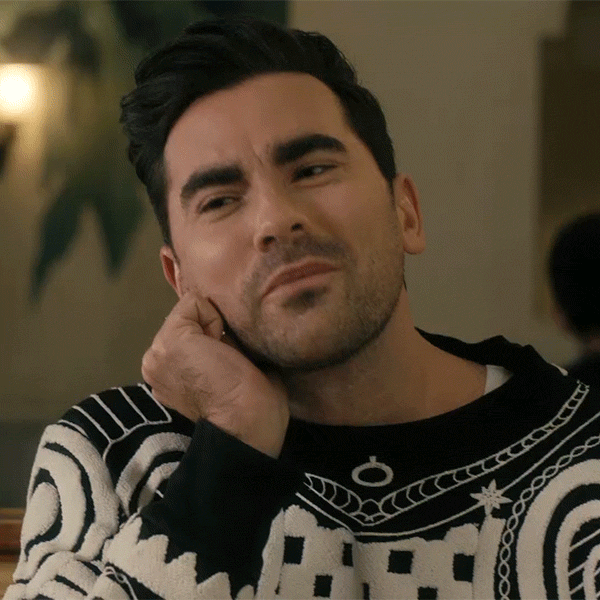
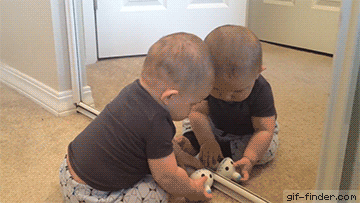
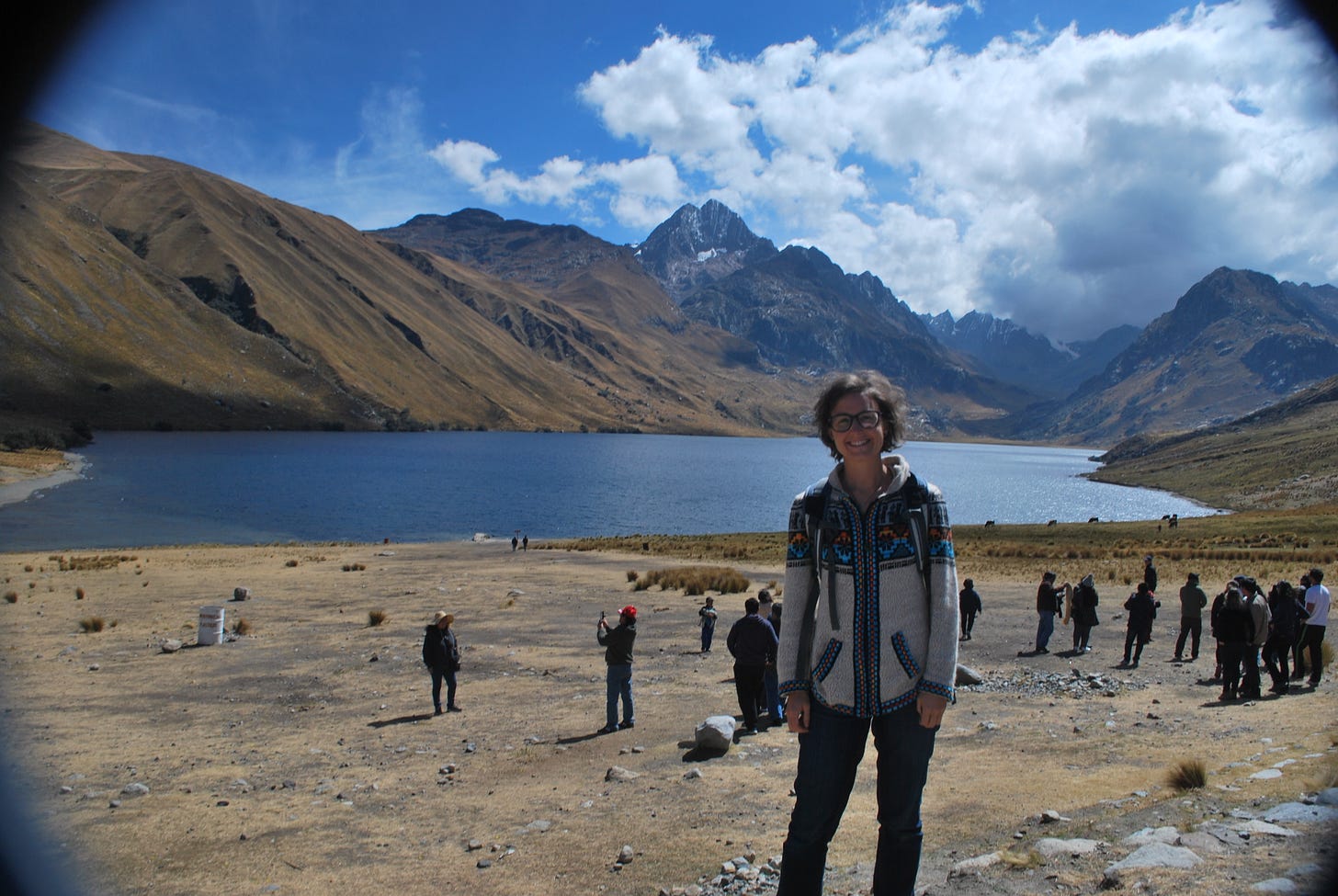
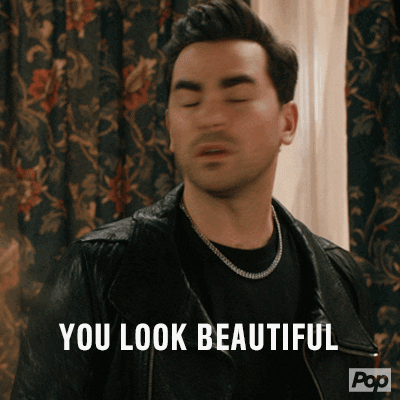
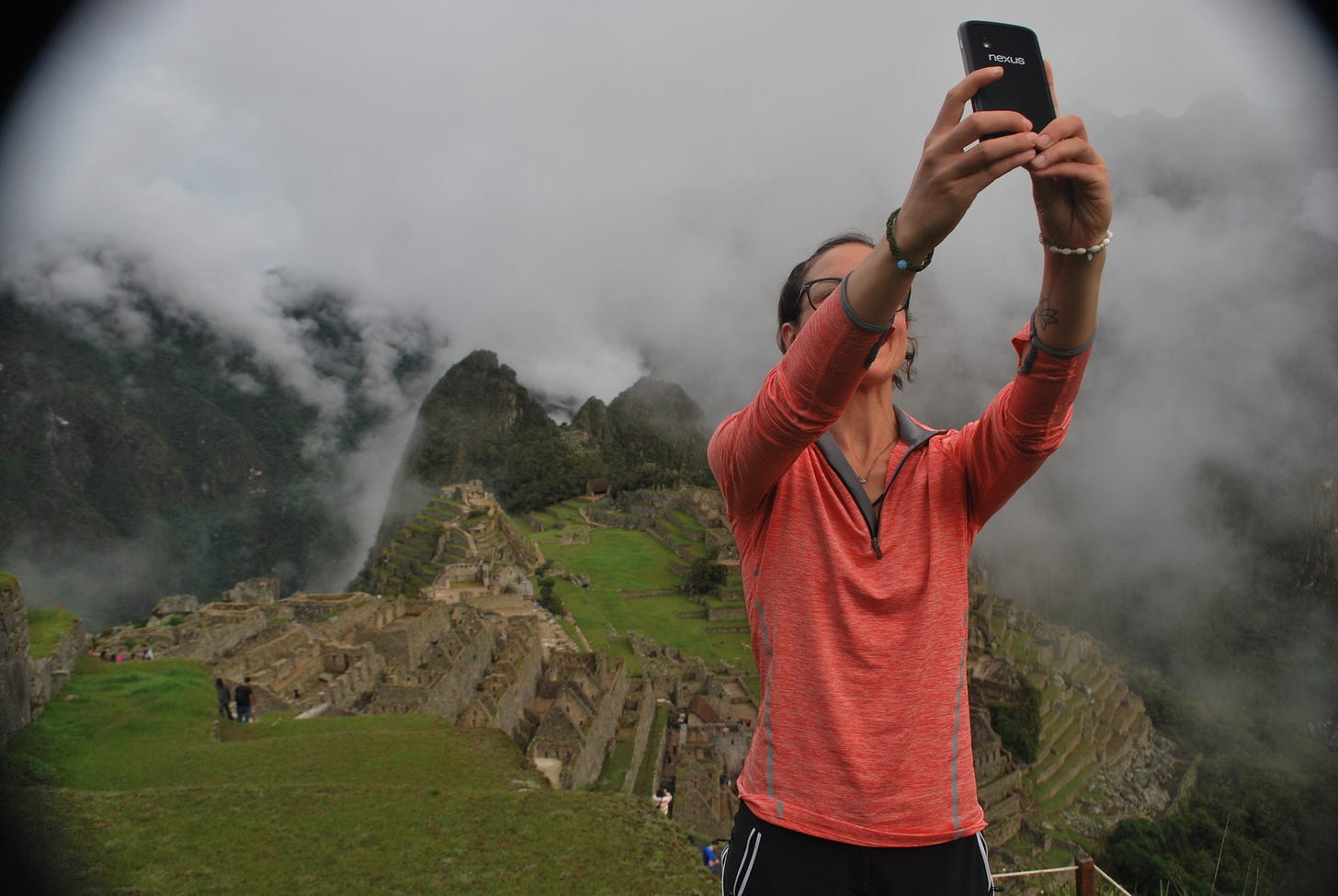


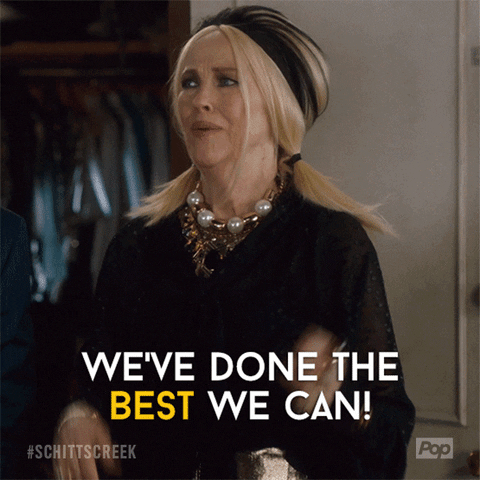

I also have long Covid after three years, it has steadily improved though still have chronic fatigue and brain fog and a few other weird things. Thank you for the quote about disenfranchised grief, I never knew its origin but have multiple experiences of it! Thanks for your writing ✨💛